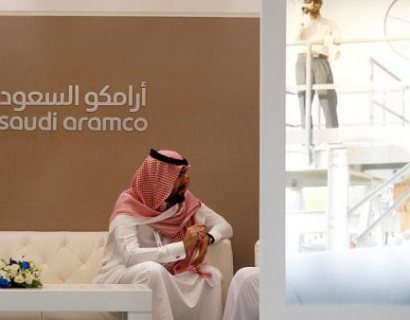Everything for  Business
Business
 Business
Business
 Business
Business
Saudi Aramco is the world’s most profitable oil company, Bloomberg reported on Friday, but its huge earnings and cash flows may still fail to justify its desired $2 trillion valuation.

Saudi Aramco is the world’s most profitable oil company, Bloomberg reported on Friday, but its huge earnings and cash flows may still fail to justify its desired $2 trillion valuation.
Financial performance at Aramco has long been one of the best kept secrets in the oil industry but as the company prepares for a long-awaited initial public offering (IPO) this year or next it needs to tell investors what it earns and how it operates.
Bloomberg news agency cited company accounts as saying Aramco had net income of $33.8 billion in the first six months of 2017 and cash flows of $52.1 billion.
Aramco said: “This is inaccurate, Saudi Aramco does not comment on speculation regarding its financial performance and fiscal regime.”
The accounts, prepared to the IFRS standard, showed the firm made $7.2 billion in net income in the first of half of 2016, when crude averaged $41 a barrel, Bloomberg said.
Saudi Arabia’s Crown Prince Mohammed bin Salman, who has made the Aramco IPO a cornerstone of Saudi economic reform to 2030, wants to raise a record $100 billion by selling a 5 percent stake in Aramco on local and foreign exchanges.
That would give Aramco a market capitalization of $2 trillion, the biggest achieved by any company and dwarfing peers such as Exxon Mobil and Royal Dutch Shell.
By comparison, Shell’s current cost of supplies earnings excluding one-offs - the closest equivalent to net income - stood at $7.4 billion in the first half of 2017, the same as Exxon’s.
Exxon had cash flow from operations and asset sales at $16 billion in the first half of 2017, compared with Shell cash flows of $20.8 billion.
Exxon’s current market capitalization stands at $327 billion and Shell is worth $285 billion.
Even though Aramco’s cash flows are two to three times bigger, its desire for a market value six to seven times higher than those of Exxon or Shell might look too ambitious to many investors and analysts who have said the company could be worth more than $1 trillion.
Reuters.com
 What are you doing with your RV in the offseason?
What are you doing with your RV in the offseason?
 Adobe will buy online design startup Figma for $ 20 billion
Adobe will buy online design startup Figma for $ 20 billion
 To combat the gas crisis, Germany offers a new plan for cheap transit
To combat the gas crisis, Germany offers a new plan for cheap transit
 Porsche family seeks iPO buyout after tearful defeat
Porsche family seeks iPO buyout after tearful defeat
 Clubs and bars are popping up all over Manhattan, providing an alternative social hub and jobs.
Clubs and bars are popping up all over Manhattan, providing an alternative social hub and jobs.
This site uses cookies and other visitor identifiers for the convenience of each user. If you stay on our site after reading this message, it means that you have no objection to the use of these technologies. Learn more
